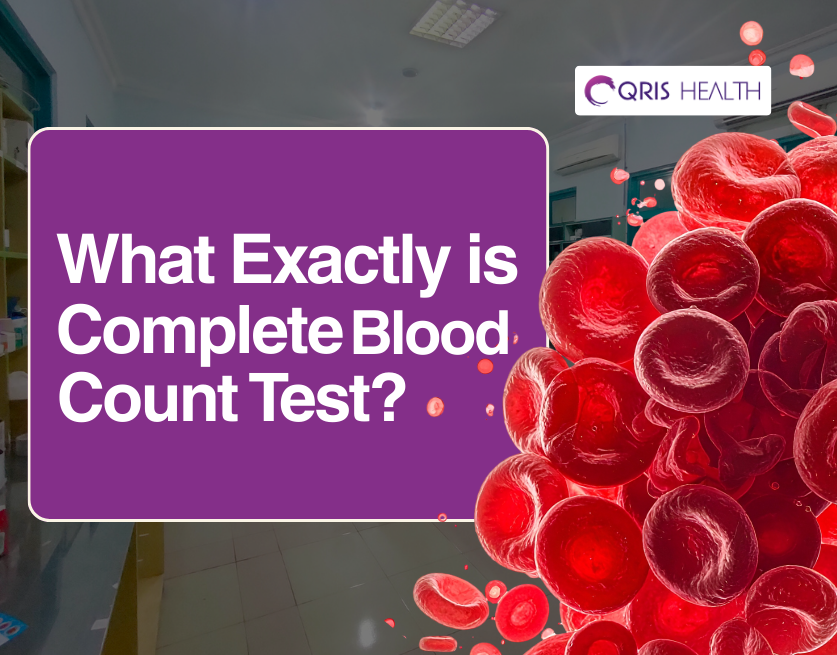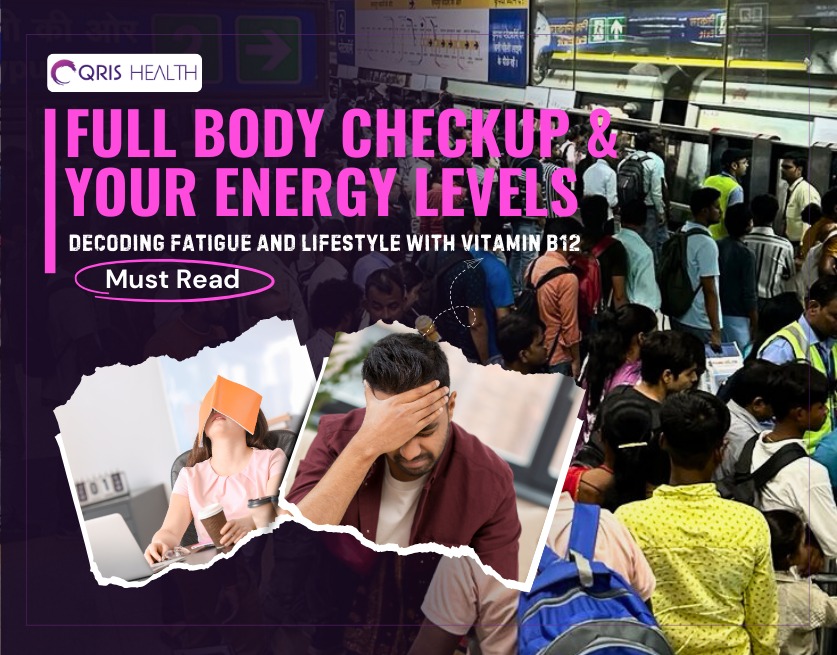Heart disease is the leading cause of death worldwide, but don’t let that scare you. Many issues can be effectively prevented by making positive lifestyle changes and taking early steps to maintain your heart health test. At QRIS Health, we are committed to empowering you with the knowledge and tools you need to protect your heart.
Understanding Heart Disease: A Closer Look
Heart disease is an umbrella term for conditions that affect the structure and function of the heart rather than a single ailment. Let's examine the prevalent kinds:
- Coronary Artery Disease (CAD): This is the most common type of heart disease, commonly called heart failure. It occurs when cholesterol, fat and other substances accumulate in coronary arteries and form plaque. Over time, this clot hardens and constricts the arteries, restricting blood flow to the heart. This reduction in blood flow can lead to chest pain (angina) and, in severe cases, heart attack.
- Heart attack - A heart attack, which is a complete blockage of blood flow to part of the heart, is usually caused by a blood clot on a plaque on a coronary artery. This lack of blood flow leads to myocardial damage or death. Symptoms of heart disease include chest pain or discomfort, shortness of breath, nausea, lightheadedness and cold sweats.
- Heart failure: This condition does not mean that your heart has stopped working, but it is not pumping blood as it should. This can be due to a variety of factors including CAD, hypertension, coronary artery disease and myocardial infarction. Symptoms of heart failure include fatigue, shortness of breath, swollen feet and legs, and rapid or irregular heartbeat.
- Arrhythmias: Arrhythmias are uneven cardiac rhythms. They may be too sluggish (bradycardia), excessively fast (tachycardia), or irregular. Some arrhythmias are innocuous, while others can be fatal, impairing the heart's capacity to pump blood adequately. Symptoms might vary from palpitations and dizziness to fainting or cardiac arrest.
- Heart Valve Disease: The heart has four arteries that pump blood in the right direction. A myocardial infarction occurs when one or more of these arteries do not open or close properly. This can be caused by birth defects, infection, or worsening with age. Symptoms include fatigue, shortness of breath, chest pain, and swollen feet or legs.
- Cardiomyopathy: This refers to diseases within the heart muscle itself, affecting its ability to contract and pump blood effectively. Coronary artery disease can be caused by genetics, infection, prolonged hypertension, or alcohol abuse. Symptoms vary depending on the type and severity, but can include fatigue, shortness of breath, chest pain and coughing.
Steps to a Healthier Heart
1. Embrace a healthy diet: Focus on a balanced diet of fruits, vegetables, whole grains, legumes, nuts, seeds and lean protein. Prioritize these foods:
- Fiber-rich fruits and vegetables: apples, berries, broccoli, spinach, legumes and beans. These also help reduce cholesterol and blood pressure.
- Heart-healthy fats: Avocados, fatty fish (salmon, tuna, mackerel), nuts, and olive oil provide omega-3 fatty acids, which reduce inflammation and protect the heart
- Whole grains: Oats, brown rice, quinoa, and wheat bread are high in fiber and nutrients that support heart health.
Limit saturated and trans fats, sodium, and added sugars in processed foods, red meat, fried foods, sugary drinks, and baked goods.
2. Get Moving: Aim for at least 150 minutes of exercise (like walking or dancing vigorously) or 75 minutes of vigorous exercise ( such as running or swimming) each week. Find activities you enjoy, such as walking, biking, or sports, that make it sustainable. Even small bursts of activity throughout the day can make a difference for preventive heart care.
3. Maintain a healthy weight: If you are overweight or obese, losing even as little as 5-10% can improve your heart health. Combine a healthy diet with regular exercise to achieve a healthy weight.
4. Don’t smoke: Smoking is a major cause of heart disease. If you smoke, you could be missing out on one of the most important steps to improving your heart health. Seek help from your doctor or a smoking cessation program.
5. Limit alcohol intake: Drinking too much can raise blood pressure and triglyceride levels, increasing the risk of heart disease. If you drink alcohol, do it in moderation: up to one drink a day for women, up to twice a day for men.
6. Managing stress: Chronic stress can lead to high blood pressure, inappropriate behavior and inflammation, all of which are harmful to heart health. Explore stress management techniques such as meditation, yoga, deep breathing exercises, or time in nature.
7. Prioritize routine check-ups and cardiac Tests: Having regular check-ups with your doctor allows you to identify risk factors early and intervene in a timely manner. In Delhi, cardiac tests like electrocardiograms (ECGs), echocardiograms and stress tests can check your heart function and detect any abnormalities. QRIS Health provides comprehensive cardiology services in Delhi, offering a comprehensive approach to heart health assessment and management.
Your Heart Health is Our Priority at QRIS Health
At QRIS Health, we are dedicated to empowering you to take charge of your heart health. Our state-of-the-art facility, skilled cardiologists and personalized care plan ensure you receive the best possible care. Whether you need routine check-ups, specialized cardiac screenings or comprehensive cardiac care in Delhi, we are here to support your journey to a healthy heart.
Wait until it’s too late. Take your first step towards a healthier heart with QRIS Health today. Contact us to schedule an appointment or to know more about our cardiology program in Delhi. Your heart will thank you!

 Health Risks of Inactive Lifestyle.jpg)
 Health effects of smoking.jpg)


